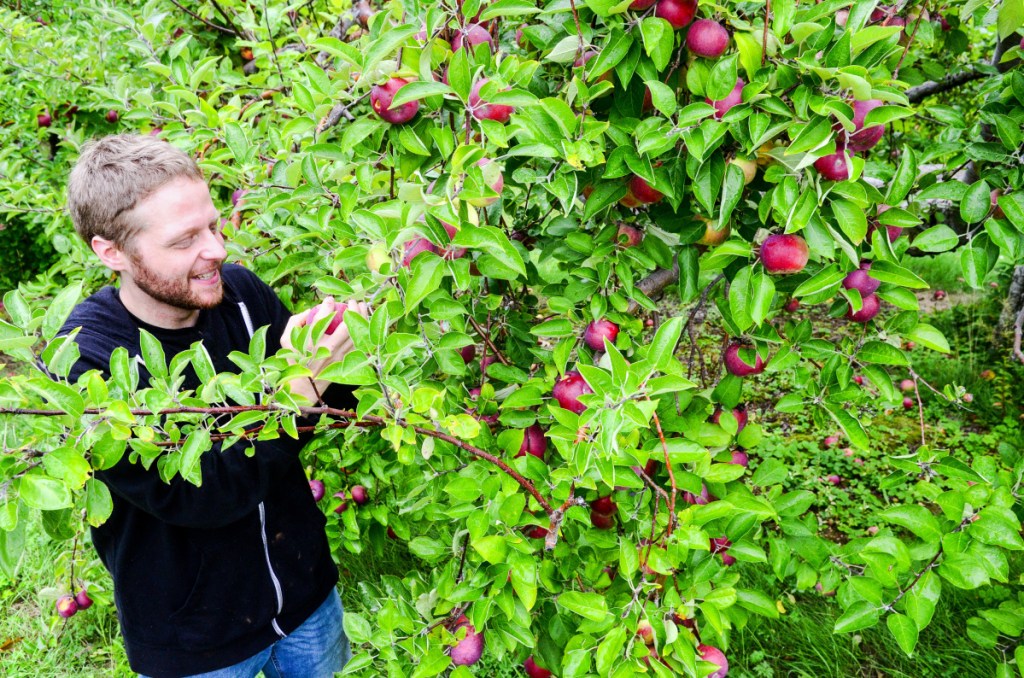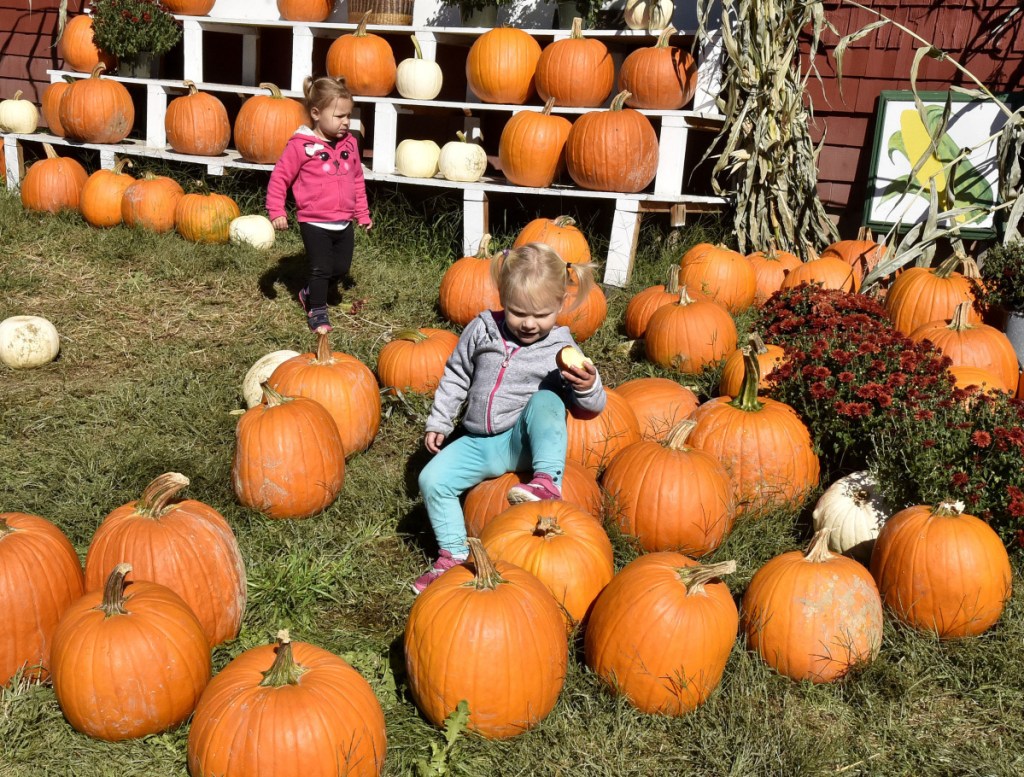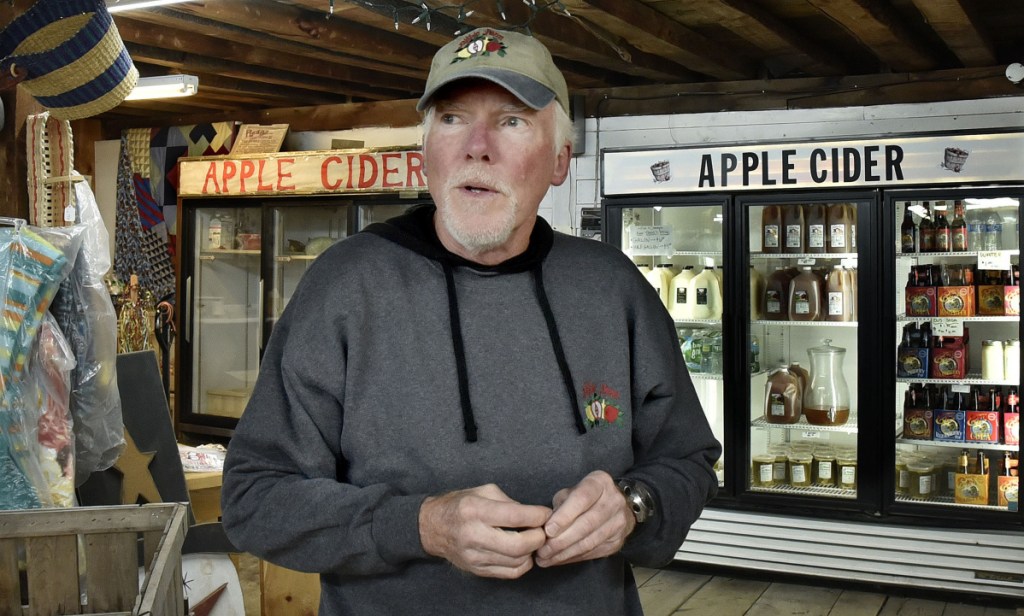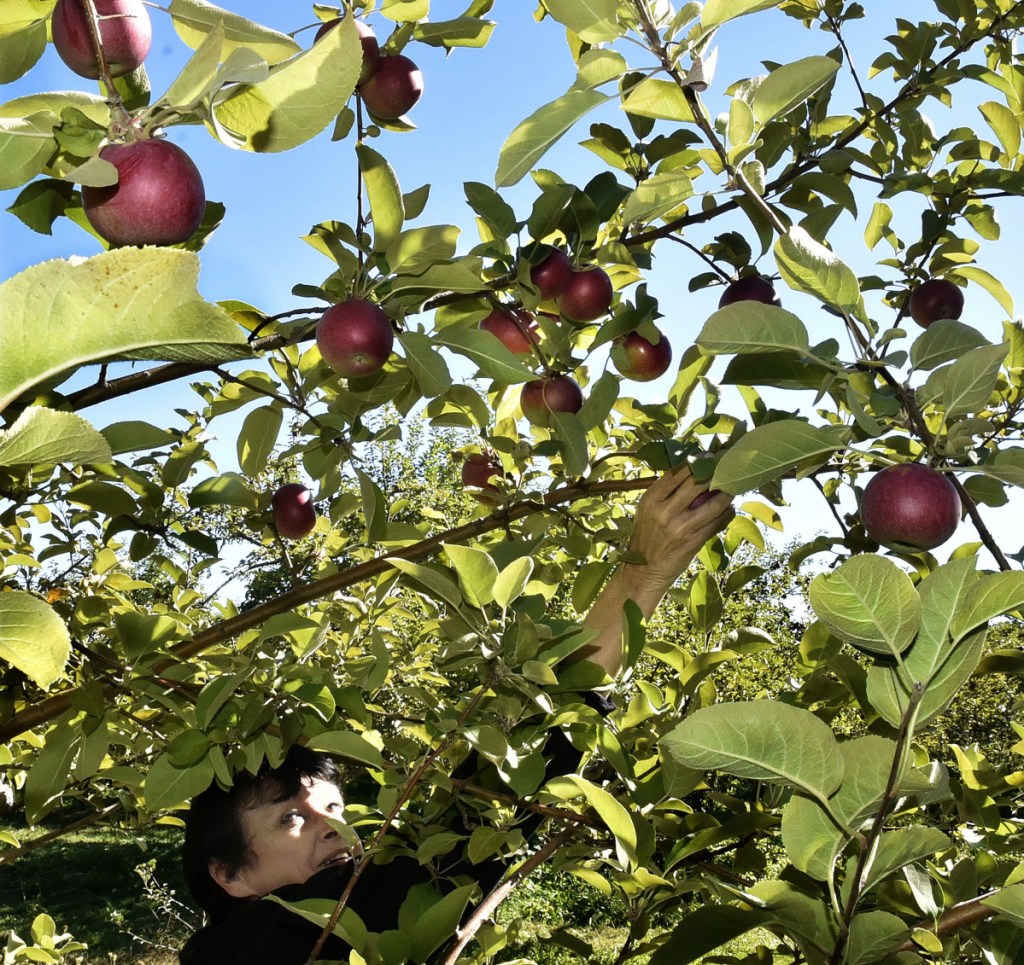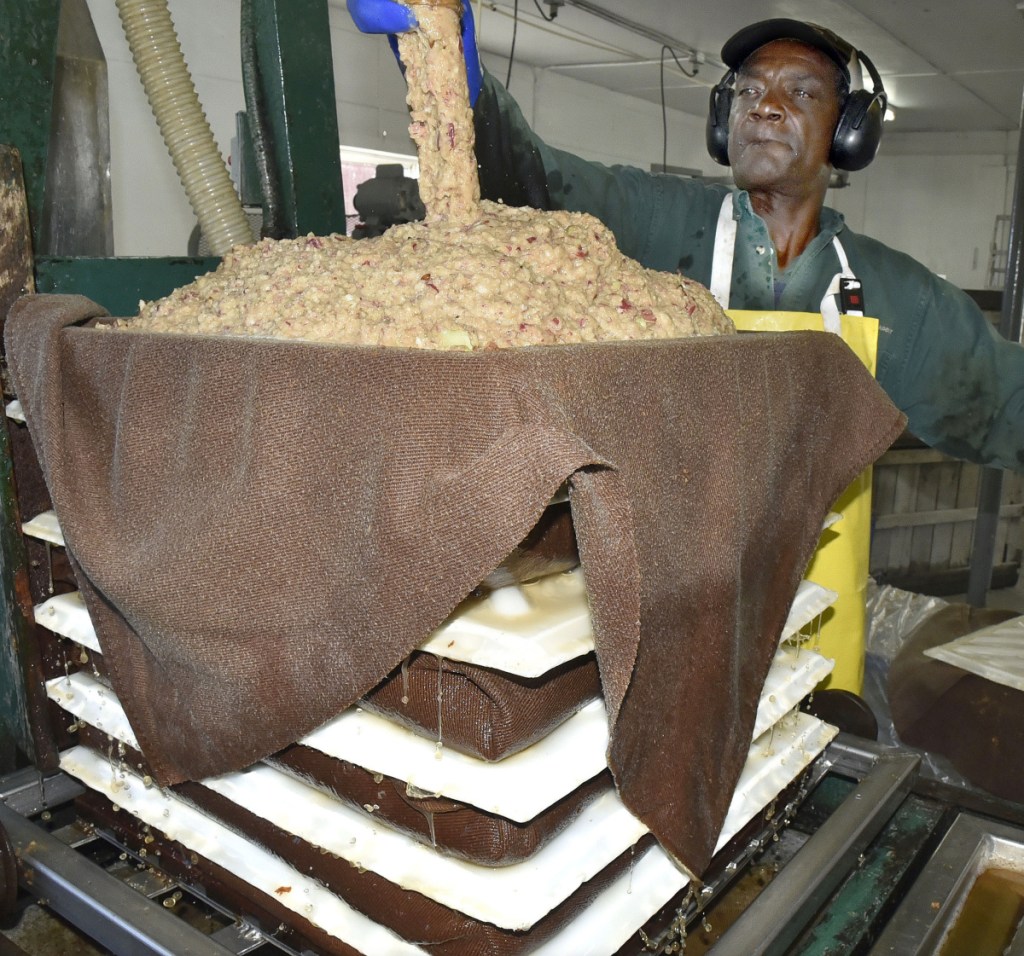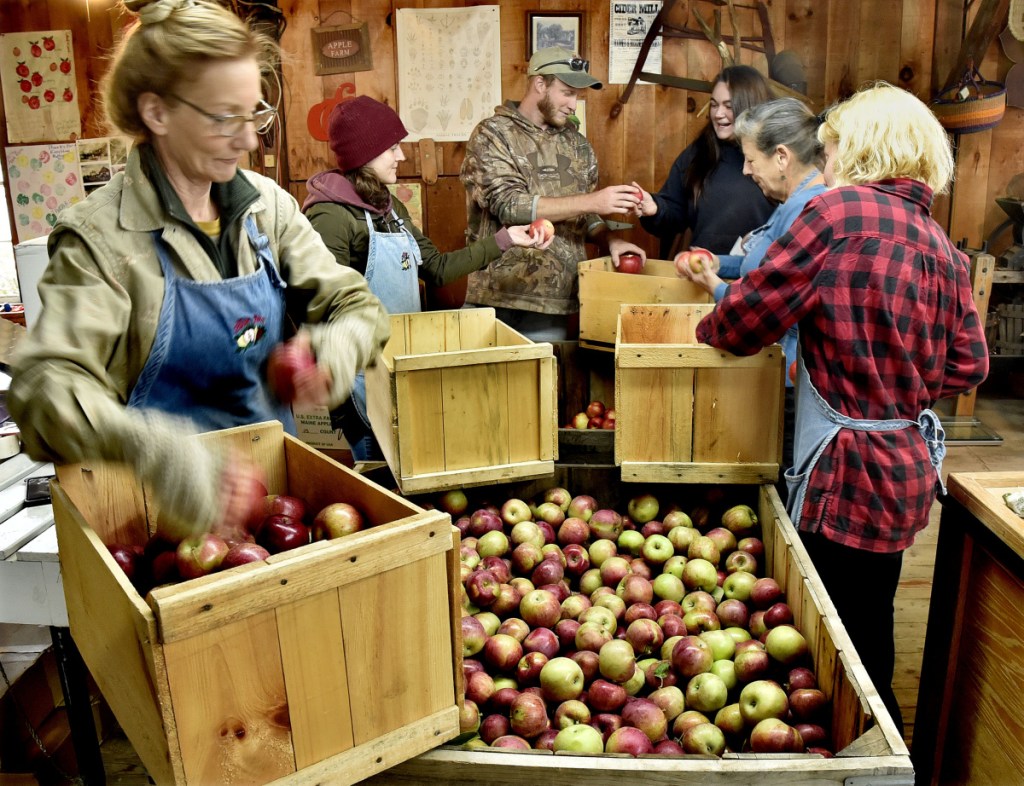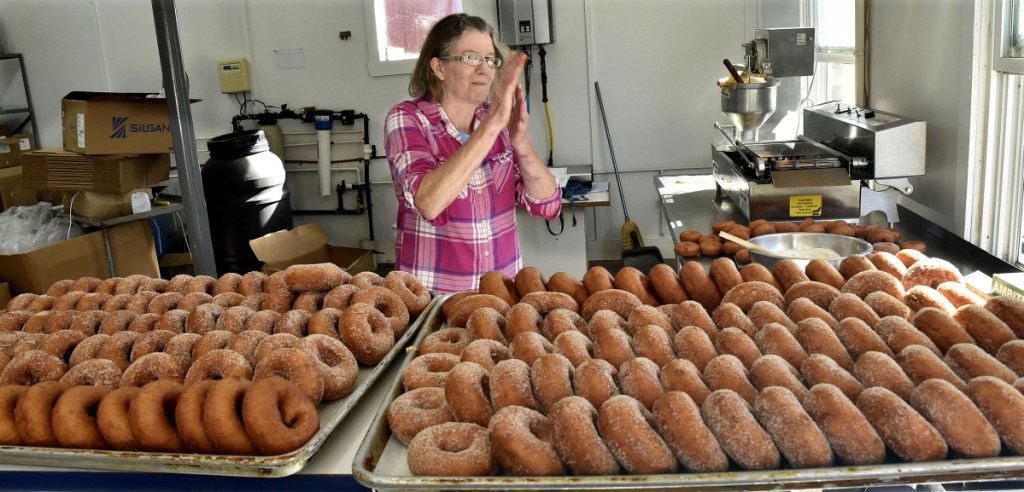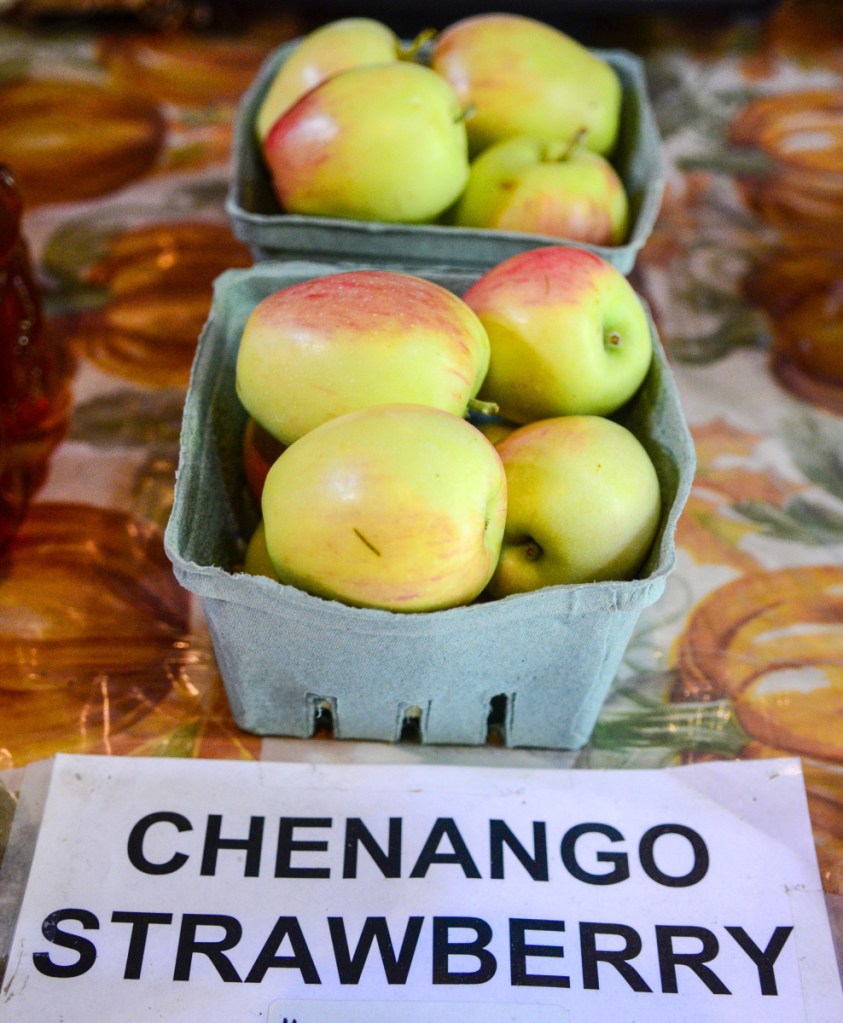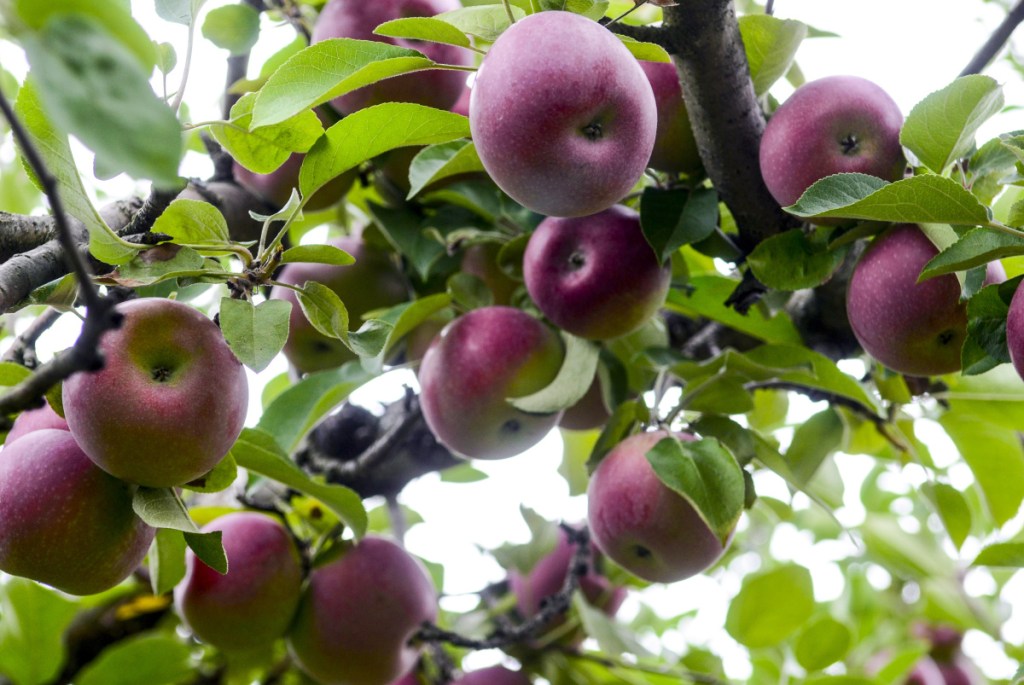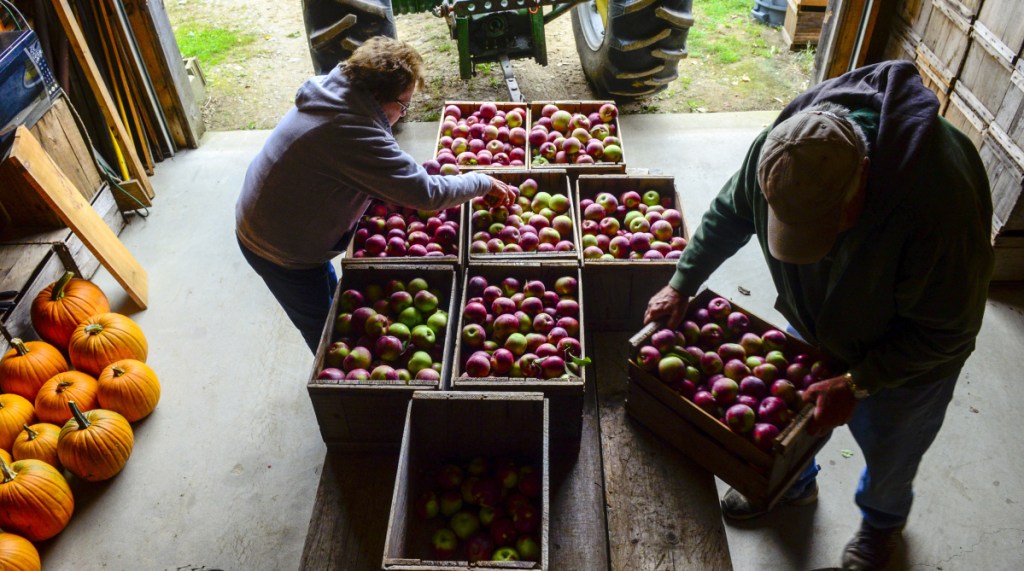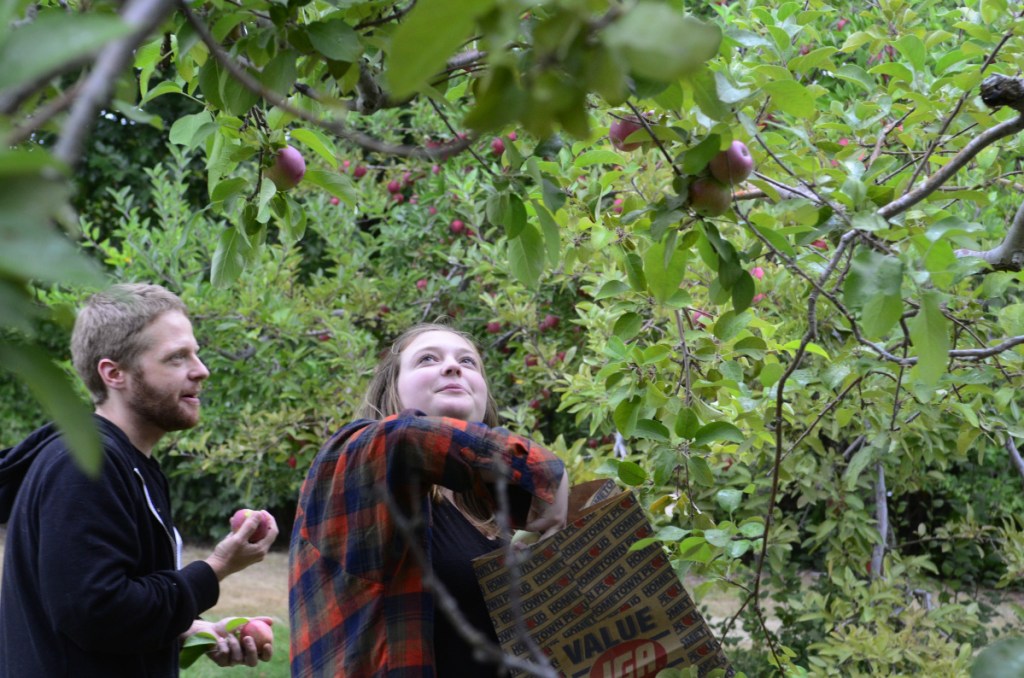Even lifelong apple harvesters at The Apple Farm in Fairfield were surprised this year by something they had never seen before at their orchards: small bites on the fruit and scratch marks on the trees.
Squirrels have been racing humans to enjoy this year’s apple harvest. The only way to combat the problem?
“Pray for heavy traffic,” joked Robin Garland, one of the farm’s local employees, as she sorted and polished McIntoshes on Tuesday.
“There’s nothing you can do,” said Bruce McDougal, a part-time delivery driver for The Apple Farm and brother of one of its owners, Marilyn Meyerhans.
Despite the uninvited snackers – and the generally dry weather during the summer – this year’s apples have been good quality, according to Meyerhans. Though more rain would have bulked up the fruit, smaller apples often have more concentrated flavor. According to McDougal, the lack of humidity also prevents fungus from growing on the fruit.
Biologists have said a bumper crop of acorns, pine cones and other food last year resulted in a population boom among squirrels and other small rodents. That has resulted in more squirrels getting killed trying to cross Maine roads this year. And, apparently, more of them have appeared in orchards as well.
Other local orchard owners in central Maine reported the apple crop looking good this year, with plenty of fruit of good color and size hitting peak season right about now. The Maine Pomological Society’s website lists some of the state’s orchards, by county.
Larry Donahue, an owner of Pleasant Pond Orchard in Richmond, said he’s seen more squirrels this year. However, he said, the additional squirrels haven’t done much damage to the orchard’s crop, which includes 45 to 50 varieties. The orchard does not offer a pick-your-own option.
At Bailey’s Orchard in Whitefield, owner Rodney Bailey also said gray squirrels have been a problem this year, helping themselves to not just apples, but also pumpkins and other fruit. He said he’s talked to some homeowners with just one or two apple trees who said squirrels ate every single fruit this year.
The business has seen a roughly 100 percent increase in squirrel damage this year, Bailey said, but even with that, the orchard grows so many apples it can handle it. The orchard is open seven days a week and has pick-your-own, as well as already picked apples for sale, and cider pressed on site.
“One of the biggest problems we’ve had this year is gray squirrels,” he said. “They’re eating our pumpkins, apples and everything else. But we’ve got a lot (of apples), so if they eat some, we’ve still got plenty of apples and the picking is good.”
Though many Maine farms have been suffering from a labor shortage this year, The Apple Farm has had enough workers, largely because of Jamaican workers who have returned to work on Meyerhans’ farm for close to two decades. The H2A visa program for temporary agricultural workers has enabled Meyerhans to support the international employees who are, in many ways, the heart of the farm come harvest time.
“Without them, we would close down at the level that we’re at,” Meyerhans said.
For a farm to be eligible for H2A workers, it has to demonstrate to U.S. Citizenship and Immigration Services that too few Americans are willing, able and qualified to do the temporary agricultural work. Each year, The Apple Farm distributes an ad recruiting Maine workers, which goes mostly unanswered.
“You can’t get employees from the States,” McDougal said. “You just can’t.”
Meg Robbins can be contacted at 861-9239 or at:
mrobbins@centralmaine.com
Twitter: megrobbins
Keith Edwards can be contacted at 621-5647 or at:
kedwards@centralmaine.com
Twitter: kedwards
Send questions/comments to the editors.



